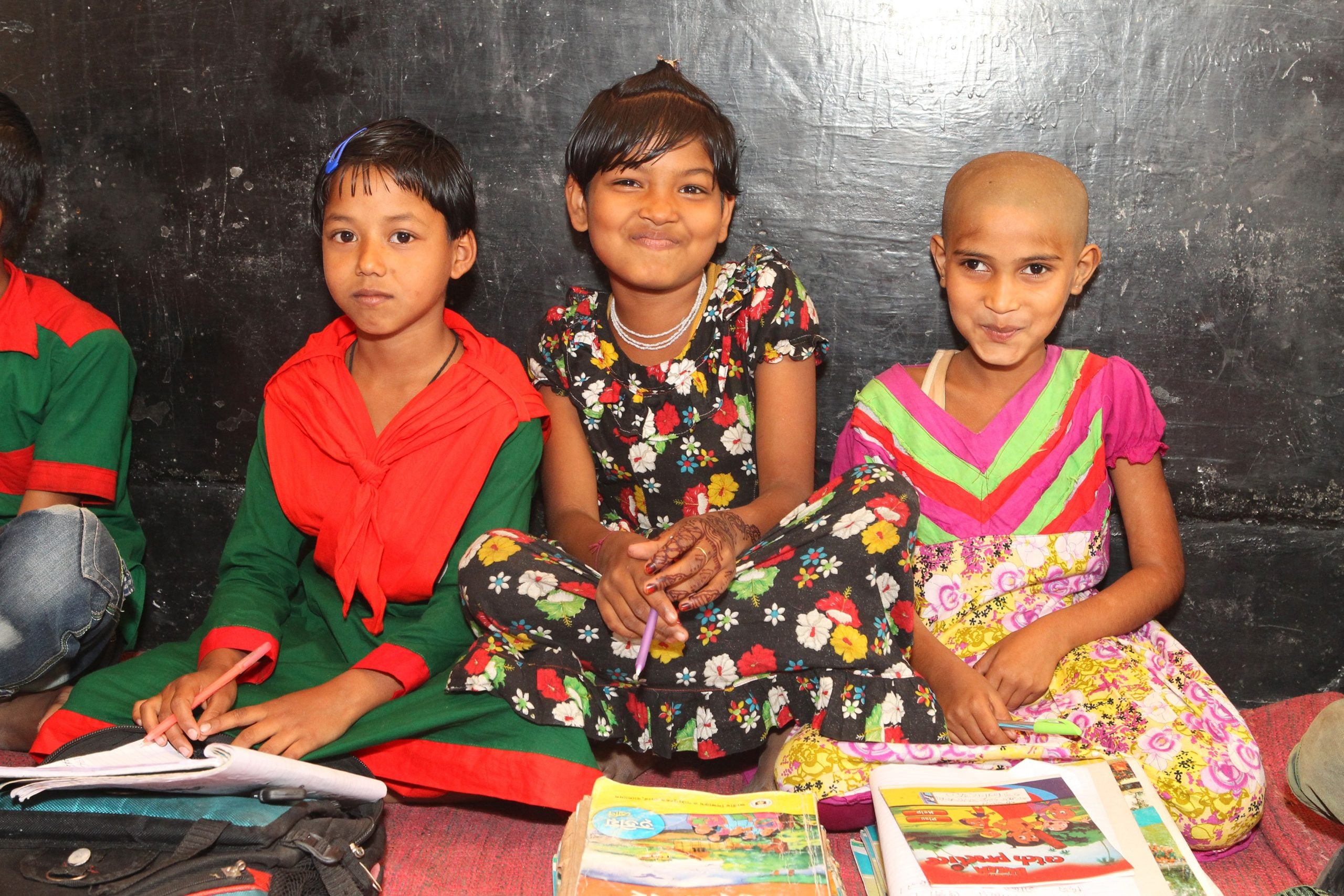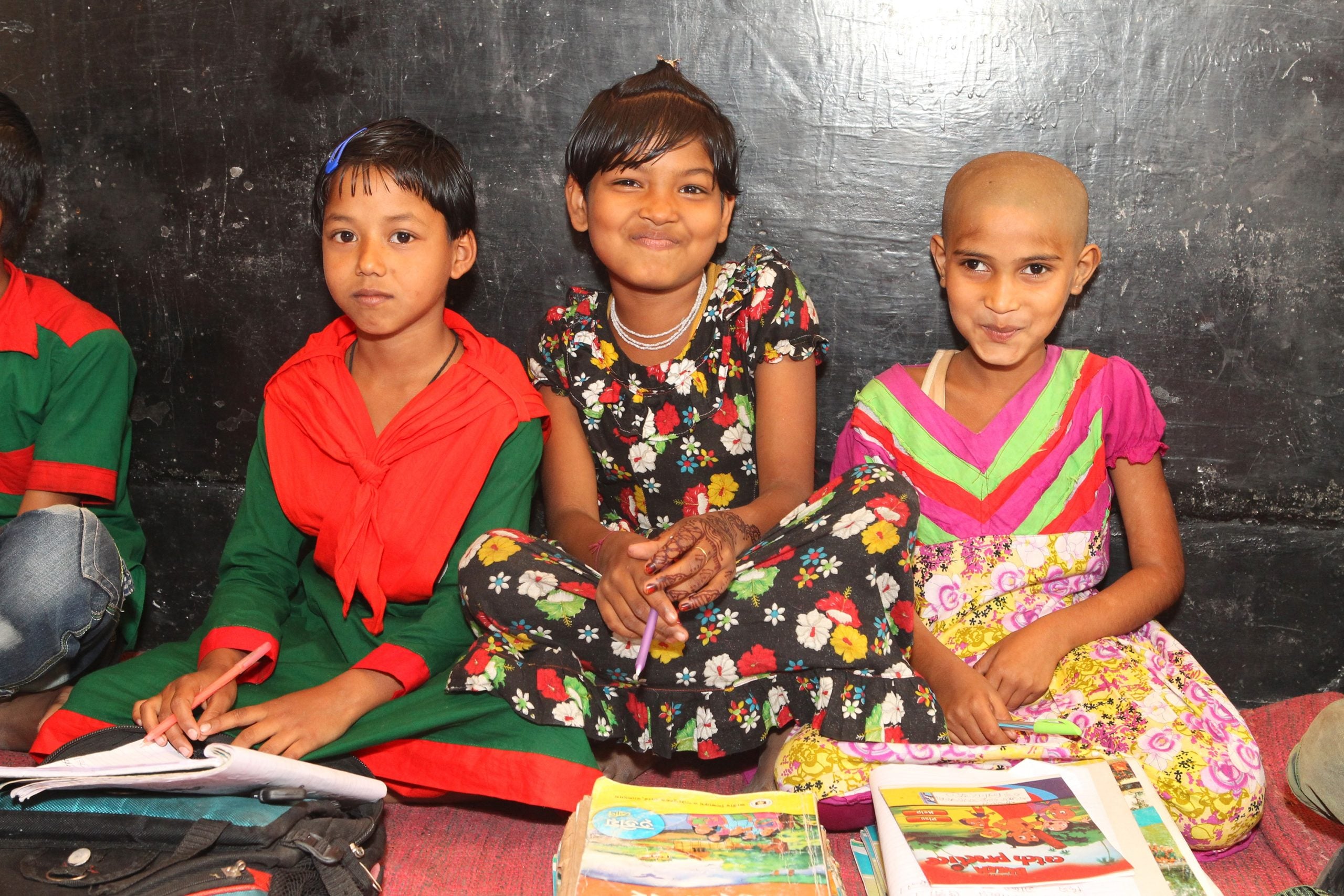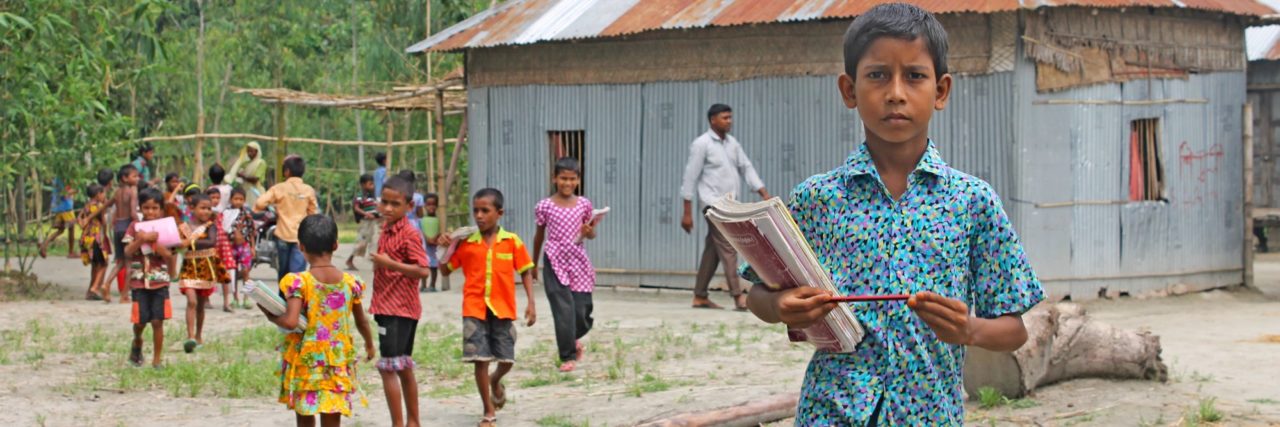
Child-centered teaching on alluvial islands in Bangladesh

need
Quality and inclusive primary education for children excluded from the education system in northwest Bangladesh.
activity
60 teachers teach 1,800 children at 60 newly founded village schools. Local NGOs provide them with pedagogical training and support in community work.
Measurable performance
Number of days children attend school and receive quality instruction.
Result
The children can read, write, do math and express themselves confidently and creatively. They pass the exam and continue their school education.
Systemically relevant impact
Primary education in remote regions of Bangladesh is becoming more equitable and improving in quality.
background


The good deed
AboutBangladesh
Dhaka
Capital city
164 689 383
Population
1,968.8
Gross domestic product
per capita per year
Rank 133 of 189
Human Development Index
(Human Development Index)






